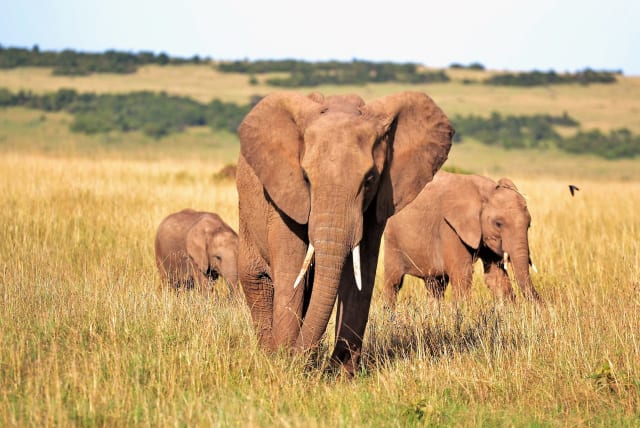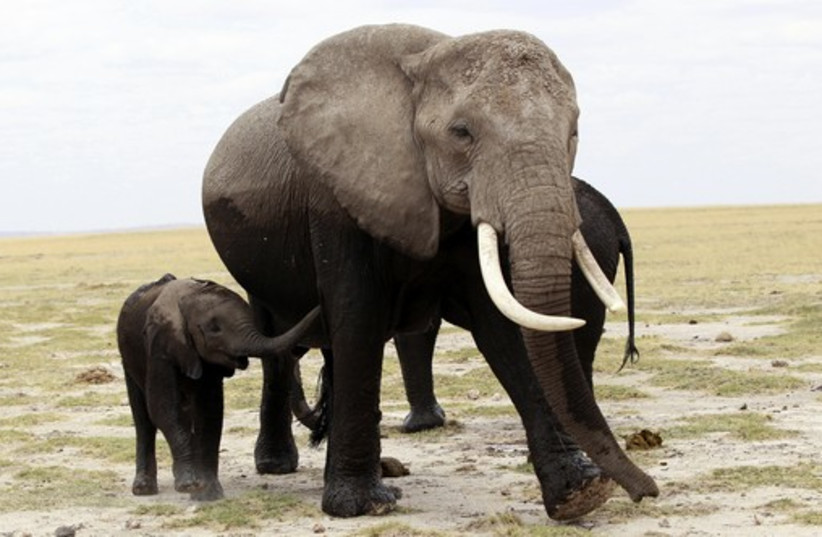Study claims elephants are self-domesticated, experts disagree

Elephants may be the only species next to humans, and possibly bonobo apes, to have domesticated themselves - this is the bold claim a recent study makes.
Elephants may be the only species next to humans, and possibly bonobo apes, to have domesticated themselves, a new peer-reviewed study published in the Proceedings of the National Academy of Sciences (PNAS) suggests.
Self-induced domestication is a concept mainly applied to humans so far. It describes the fact that humans have achieved a uniquely sophisticated culture and societal structures, complex languages, their extensive tool use, which is only possible because of the high degree of cooperation between humans.
To make this possible, according to the self-domestication hypothesis, an evolutionary process of self-induced domestication had to occur, in which humans evolved to be less aggressive and more cooperative.
The study's argument
The study suggests elephants as an animal model to study this theory.
The researchers test their hypothesis on two arguments, one based on extensive cross-species comparison and the other based on genetic evidence.
Based on the comparison with humans and bonobos, the study claims to have found many common traits, like reduced aggression, increased prosociality, an extended juvenile period, increased playfulness, socially regulated cortisol levels, and complex vocal behavior.
Researchers also found that elephants, bonobos and humans, all have relatively short jawbones, a trait commonly seen in other domesticated animals and theorized to be a byproduct of selecting for other traits during domestication.
The genetic argument of the study posits that genes positively selected in elephants are enriched in pathways associated with domestication traits and include several candidate genes previously associated with domestication. The scientists compared the genome of wild African savannah elephants with those of 261 domesticated mammals such as dogs and horses, identifying 79 genes linked to domestication in other species that seemingly also became more common in elephant generations over time.
Experts criticize the study
This theory might be fascinating, but some experts have expressed their doubts."It's a fun idea but I'm certainly not convinced by self-domestication as a concept," evolutionary biologist Dominic Wright, who studies domestication at Linköping University in Sweden, told science website Live Science.
"I certainly agree that humans have evolved to have increased sociality and increased communication but I don't think you need to bring in this term of self-domestication for humans or elephants." The term isn't helpful to understand how the evolution of social behavior occurs and is thus unnecessary, according to Wright.
He went on to criticize the genetic argument presented in the study, claiming it was weak. "They link genes in elephants with genetic pathways thought to be involved in the domestication of other animals but that doesn't really tell us if those genes actually contribute to them having traits associated with domestication, they may have any other function."
"I would personally not use the concept of self-domestication, but that's more like a semantic issue," Per Jensen, a geneticist studying animal domestication at Linköping University in Sweden, told Live Science.
The study still discusses an "interesting idea" that helps "trigger new thoughts on how increased cooperativeness and reduced aggression has evolved," Jensen said.
Jerusalem Post Store
`; document.getElementById("linkPremium").innerHTML = cont; var divWithLink = document.getElementById("premium-link"); if (divWithLink !== null && divWithLink !== 'undefined') { divWithLink.style.border = "solid 1px #cb0f3e"; divWithLink.style.textAlign = "center"; divWithLink.style.marginBottom = "15px"; divWithLink.style.marginTop = "15px"; divWithLink.style.width = "100%"; divWithLink.style.backgroundColor = "#122952"; divWithLink.style.color = "#ffffff"; divWithLink.style.lineHeight = "1.5"; } } (function (v, i) { });

